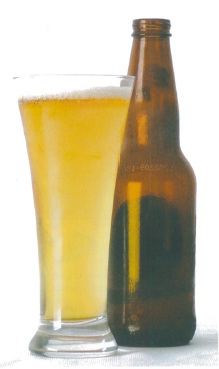Avoiding the tourist trap for brewery success
“My grandfather was a Minister that believed in no dancing, no drinking and so on. With my father being of German descent there were always interesting situations with the German side tormenting my mother by offering the children beer…I guess things progressed from there!”
—John Schultz
From the Bubble to Brews
John Schultz came to Japan in time for their bubble economy, but found his real success with microbrews. This was no easy feat. Dominated by such giants as Asahi, Kirin and Sapporo, the Japanese beer industry is a tough nut to crack by all accounts. Especially for a foreigner running a microbrewery.
Like most success stories, Schultz’s success can be traced to his filling of an as-yet unfilled niche. While most microbreweries survive on the tourist market selling novelty brews at resort locations and tightening their belts in the off-season, Schultz hit on the idea of providing tailor-made beers for Tokyo pubs and restaurants year-round.
An Opportunity is Created
In 1994, the brewing business in Japan was deregulated. Though this did not allow the free-for-all that many expected, opportunities opened up for individuals hoping to establish an independent brewery, albeit slowly. Initially, in order to gain a license, any brewery had to output a minimum of 2,400 liters of beer per annum. This figure has since been reduced to a more reasonable 60 liters, and with it an increase in activity in the more independent sections of the industry. A number of large companies began to show interest in the new business opportunities available, especially at the microbrewery level.
Meanwhile, John Schultz had been brewing beers in his own home since the early 1990s. Quite serious about this hobby, he had developed software to determine the optimum amount of hops and malts to use in the process. His day job provided many opportunities to visit various breweries, during which he found himself searching for the right opportunity to expand his hobby into something more.
Creating and Competing
Most of the microbreweries in Japan were, and still are, targeting local tourist trade. Any visit to the Japanese countryside should not be deemed complete without a sample of the local brew. The local beer purchased at a tourist gift shop on your onsen vacation, for example, may be of much higher quality than the brews on offer in your local Tokyo convenience store. While the quality is rarely questionable, the relatively high costs of production in comparison to the super breweries (the Asahis and the Kirins) mean that the output of microbreweries tends to be uncompetitive in terms of price. It is hard for any microbrewery to expand out of this narrow “novelty” market.
Not surprisingly, many microbreweries have felt the pinch and folded. However, Shultz has been able to successfully take up Aizu brewery, and expand beyond the traditional local tourist market into the pubs of Tokyo. Now accounting for a third of his total business, Aizu beer is available at a number of the English and Irish bars many of you will be familiar with. This has been an important strategy for Shultz, and it has allowed him to steer the company away from the fate of other less fortunate microbreweries.
It’s not Easy, but it’s Worth It
Still using the same software that was used with his first ventures at home, Shultz’s Aizu beer has built up a solid reputation for high quality, affordable beers. In his own words, “selling beer in Japan is not easy,” yet the example he has set provides inspiration to those who seek to carve out a high quality niche in areas of Japanese business that are dominated by a small number of powerful players.
A selection of Aizu Beers:
- Aizu Black Rice beer was awarded the Silver Medal at the 2003 International Beer Cup Competition. Using black rice from the foot of Mount Bandai, the beer is a summer ale with a slightly sweet and citrus flavor.
- Beethoven beer is characterized by robust malt and hops flavors. With an alcohol content of 6.5 percent, Beethoven is serious stuff.
- Akabeko Ale has a toasty brown malt richness and mild hoppiness.
- Akabeko Stout is a dry, Irish stout: smooth, with chocolate and espresso tones.









